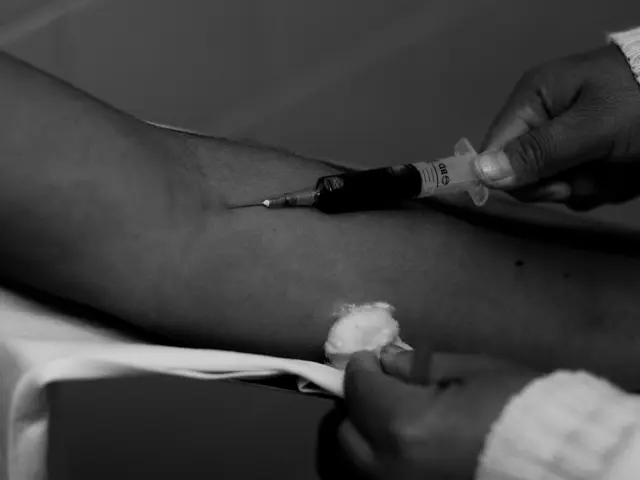Treatment Expenses: Essential Info on Chemotherapy Costs
Cancer treatment can be a complex and costly journey, but understanding your options and communicating with your healthcare team and insurance provider can make navigating the costs easier.
Cancer support groups can be found at local hospitals, online, or through organisations like CancerCare, Friend for Life, and Cancer Support Community. These groups can provide emotional and practical support during your treatment.
When it comes to financial matters, it's important to know that Medicare covers chemotherapy and other cancer treatments, but individuals are still responsible for annual deductibles for Part A and Part B, and the remaining 20% of costs. Many Medicare beneficiaries acquire additional 'Medigap' coverage with a Medicare supplement policy to reduce out-of-pocket expenses.
Chemotherapy is a drug therapy used to destroy fast-spreading cancer cells and reduce symptoms like pain. Cancer treatment methods such as surgery, radiation, and drug therapy (including chemotherapy) may have partial coverage by health insurance. Intravenous (IV) drugs are covered under a medical plan, while pills are covered by a separate pharmacy plan.
The exact cost of chemotherapy varies for each person, depending on factors like the stage of your disease, number of treatments, and the form of chemotherapy. With health insurance, one can expect to pay 10 to 15 percent of chemotherapy costs out of pocket, according to CostHelper.com.
The fees for laboratory tests and imaging tests are often billed directly from the laboratory and may be covered partially or fully by your insurance provider. The fees for office visits may require a copay or coinsurance, which might be listed on your health insurance card.
Without health insurance, chemotherapy costs can range from $10,000 to $200,000 or more. In such cases, organisations like the Cancer Financial Assistance Coalition, Patient Access Network Foundation, and Patient Advocate Foundation can provide financial help for cancer treatment costs.
To help manage chemotherapy costs, choose in-network providers, plan for out-of-network visits, get a full list of treatment needs, call pharmacies in advance, explore alternatives, check if you need pre-approval, check coverage for emergency care, pay your health insurance premiums, keep track of bills, work with a counselor, and seek financial assistance.
It's crucial to remember that the type of cancer, stage of disease, number of treatments, duration of treatment, type of chemotherapy, treatment setting, geographic location, and side effects can all affect the total price of chemotherapy.
In conclusion, while the costs of cancer treatment can be daunting, there are resources available to help you navigate these expenses. By understanding your coverage, communicating with your healthcare team, and exploring financial assistance options, you can focus on what matters most: your health and recovery.
Read also:
- Impact of a Government Shutdown on Citizens
- Medical Specialist Based in Visakhapatnam
- Individuals in New York afflicted by Legionnaires' disease have legitimate legal entitlements. Here's some essential information on the matter.
- Toxic Shock Syndrome: Signs, Origins, Tampon Connection, and Further Details








